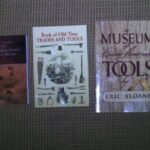
 In part one of this series, I discussed the pros and cons of insisting on killer opening lines, how it serves the interests of agents and editors more than readers, yet how a strong first line can still lend an air of dignity and confidence to any story. In part two, I presented my favorite first lines based on engaging ideas.
In part one of this series, I discussed the pros and cons of insisting on killer opening lines, how it serves the interests of agents and editors more than readers, yet how a strong first line can still lend an air of dignity and confidence to any story. In part two, I presented my favorite first lines based on engaging ideas.
Today I want to dig into my second list of Best First Lines, six of them, dedicated to openers that present the reader with an engaging character.
You might think that the “engaging character” in question would always be the first-person narrator but, as we’ll see, that’s not always the case.


 In a damn* interesting piece yesterday at Talk To YoUniverse, Juliette Wade discusses how writers can navigate the differing perspectives of characters inside and outside a culture group.
In a damn* interesting piece yesterday at Talk To YoUniverse, Juliette Wade discusses how writers can navigate the differing perspectives of characters inside and outside a culture group.
 You’ve come a long way, baby! I mean … um … ladies.
You’ve come a long way, baby! I mean … um … ladies.
 Some writers might dismiss the concept of story structure as contrived of stiflingly un-artistic conventions, a set of gimmicks reserved for mere “genre” fiction, i.e. stories with (allegedly) little importance.
Some writers might dismiss the concept of story structure as contrived of stiflingly un-artistic conventions, a set of gimmicks reserved for mere “genre” fiction, i.e. stories with (allegedly) little importance.
 From W. H. Auden’s review of J. R. R. Tolkien’s Return of the King, in the
From W. H. Auden’s review of J. R. R. Tolkien’s Return of the King, in the 
 I have a Top Book of 2010. Yes, a book. Singular.
I have a Top Book of 2010. Yes, a book. Singular.
 procraftinate /pro-kræf-ti-neit/ v. – to put off writing and sending query letters to literary agents so one can continue researching, writing, and rewriting fiction.
procraftinate /pro-kræf-ti-neit/ v. – to put off writing and sending query letters to literary agents so one can continue researching, writing, and rewriting fiction.